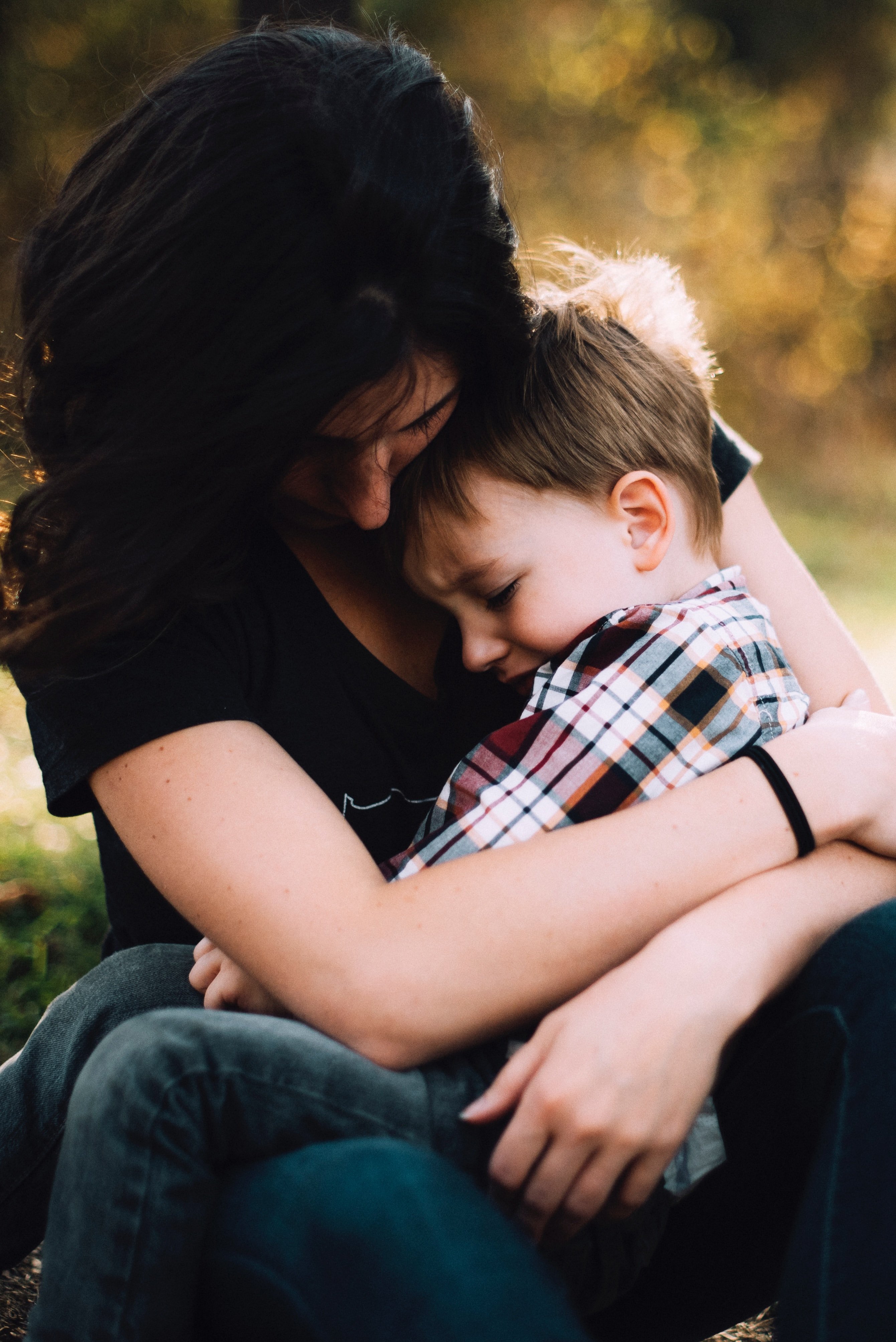When we recognize kids’ unwelcome behaviors as reactions to environmental conditions, developmental phases, or our own actions, we can respond proactively, and with compassion.
Here are 10 ways kids may seem like they’re acting “naughty” but really aren’t. And what parents can do to help.
1. They can’t control their impulses.
Ever say to your kid, “Don’t throw that!” and they throw it anyway?
Research suggests the brain regions involved in self-control are immature at birth and don’t fully mature until the end of adolescence, which explains why developing self-control is a “long, slow process.”
A recent survey revealed many parents assume children can do things at earlier ages than child-development experts know to be true. For example, 56% of parents felt that children under the age of 3 should be able to resist the desire to do something forbidden whereas most children don’t master this skill until age 3 and a half or 4.
What parents can do: Reminding ourselves that kids can’t always manage impulses (because their brains aren’t fully developed) can inspire gentler reactions to their behavior.
2. They experience overstimulation.
We take our kids to Target, the park, and their sister’s play in a single morning and inevitably see meltdowns, hyperactivity, or outright resistance. Jam-packed schedules, overstimulation, and exhaustion are hallmarks of modern family life.
Research suggests that 28% of Americans “always feel rushed” and 45% report having “no excess time.” Kim John Payne, author of “Simplicity Parenting,” argues that children experience a “cumulative stress reaction” from too much enrichment, activity, choice, and toys. He asserts that kids need tons of “down time” to balance their “up time.”
What parents can do: When we build in plenty of quiet time, playtime, and rest time, children’s behavior often improves dramatically.
3. Kids’ physical needs affect their mood.
Ever been “hangry” or completely out of patience because you didn’t get enough sleep? Little kids are affected tenfold by such “core conditions” of being tired, hungry, thirsty, over-sugared, or sick.
Kids’ ability to manage emotions and behavior is greatly diminished when they’re tired. Many parents also notice a sharp change in children’s behavior about an hour before meals, if they woke up in the night, or if they are coming down with an illness.
What parents can do: Kids can’t always communicate or “help themselves” to a snack, a Tylenol, water, or a nap like adults can. Help them through routines and prep for when that schedule might get thrown off.

4. They can’t tame their expression of big feelings.
As adults, we’ve been taught to tame and hide our big emotions, often by stuffing them, displacing them, or distracting from them. Kids can’t do that yet.
What parents can do: Early-childhood educator Janet Lansbury has a great phrase for when kids display powerful feelings such as screaming, yelling, or crying. She suggests that parents “let feelings be” by not reacting or punishing kids when they express powerful emotions. (Psst: “Jane the Virgin” actor Justin Baldoni has some tips on parenting through his daughter’s grocery store meltdown.)
5. Kids have a developmental need for tons of movement.
“Sit still!” “Stop chasing your brother around the table!” “Stop sword fighting with those pieces of cardboard!” “Stop jumping off the couch!”
Kids have a developmental need for tons of movement. The need to spend time outside, ride bikes and scooters, do rough-and-tumble play, crawl under things, swing from things, jump off things, and race around things.
What parents can do: Instead of calling a child “bad” when they’re acting energetic, it may be better to organize a quick trip to the playground or a stroll around the block.

6. They’re defiant.
Every 40- and 50-degree day resulted in an argument at one family’s home. A first-grader insisted that it was warm enough to wear shorts while mom said the temperature called for pants. Erik Erikson’s model posits that toddlers try to do things for themselves and that preschoolers take initiative and carry out their own plans.
What parents can do: Even though it’s annoying when a child picks your tomatoes while they’re still green, cuts their own hair, or makes a fort with eight freshly-washed sheets, they’re doing exactly what they are supposed to be doing — trying to carry out their own plans, make their own decisions, and become their own little independent people. Understanding this and letting them try is key.
7. Sometimes even their best traits can trip them up.
It happens to all of us — our biggest strengths often reflect our weaknesses. Maybe we’re incredibly focused, but can’t transition very easily. Maybe we’re intuitive and sensitive but take on other people’s negative moods like a sponge.
Kids are similar: They may be driven in school but have difficulty coping when they mess up (e.g., yelling when they make a mistake). They may be cautious and safe but resistant to new activities (e.g., refusing to go to baseball practice). They may live in the moment but aren’t that organized (e.g., letting their bedroom floor become covered with toys).
What parents can do: Recognizing when a child’s unwelcome behaviors are really the flip side of their strengths — just like ours — can help us react with more understanding.
8. Kids have a fierce need for play.
Your kid paints her face with yogurt, wants you to chase her and “catch her” when you’re trying to brush her teeth, or puts on daddy’s shoes instead of her own when you’re racing out the door. Some of kids’ seemingly “bad” behaviors are what John Gottman calls “bids” for you to play with them.
Kids love to be silly and goofy. They delight in the connection that comes from shared laughter and love the elements of novelty, surprise, and excitement.
What parents can do: Play often takes extra time and therefore gets in the way of parents’ own timelines and agendas, which may look like resistance and naughtiness even when it’s not. When parents build lots of playtime into the day, kids don’t need to beg for it so hard when you’re trying to get them out the door.
9. They are hyperaware and react to parents’ moods.
Multiple research studies on emotional contagion have found that it only takes milliseconds for emotions like enthusiasm and joy, as well as sadness, fear, and anger, to pass from person to person, and this often occurs without either person realizing it. Kids especially pick up on their parents’ moods. If we are stressed, distracted, down, or always on the verge of frustrated, kids emulate these moods. When we are peaceful and grounded, kids model off that instead.
What parents can do: Check in with yourself before getting frustrated with your child for feeling what they’re feeling. Their behavior could be modeled after your own tone and emotion.
10. They struggle to respond to inconsistent limits.
At one baseball game, you buy your kid M&Ms. At the next, you say, “No, it’ll ruin your dinner,” and your kid screams and whines. One night you read your kids five books, but the next you insist you only have time to read one, and they beg for more. One night you ask your child, “What do you want for dinner?” and the next night you say, “We’re having lasagna, you can’t have anything different,” and your kids protest the incongruence.
When parents are inconsistent with limits, it naturally sets off kids’ frustration and invites whining, crying, or yelling.
What parents can do: Just like adults, kids want (and need) to know what to expect. Any effort toward being 100% consistent with boundaries, limits, and routines will seriously improve children’s behavior.
This story first appeared on Psychology Today and was reprinted here 7.20.21 with permission.


































